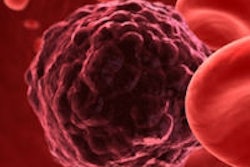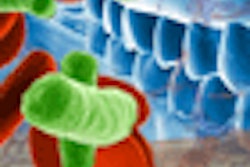The University of California, Los Angeles (UCLA) School of Dentistry has received $5 million in funding from the National Institutes for Health to study biological markers in saliva to attempt to develop a tool for detecting stomach cancer.
The study has the potential to create a new paradigm in the field of salivary diagnostics, and it could supply concrete evidence that saliva can be used in the detection of life-threatening diseases, including diabetes and cancers of the pancreas, breasts, ovaries, and stomach, the university noted in a press release.
The award comes from the NIH Common Fund, a program established to overcome obstacles in biomedical research that have hindered scientific discovery and its translation into improved human health. The funding awarded to the School of Dentistry comes from the Common Fund's Extracellular RNA Communication initiative, which has awarded leading research institutes around the world a total of $160 million to address the transformative potential of the emerging field of salivary diagnostics.
Leading UCLA's five-year project is David Wong, DMD, DMSc, the dental school's associate dean of research. His team will develop and definitively validate salivary extracellular RNA biomarkers for stomach cancer detection.
Dr. Wong's team will conduct a prospective study to develop a salivary biomarker panel that would definitively validate for stomach cancer detection. Their hope is to capture exRNAs in saliva samples secreted by stomach cancer cells to confirm whether the patient is at risk for stomach cancer.



















